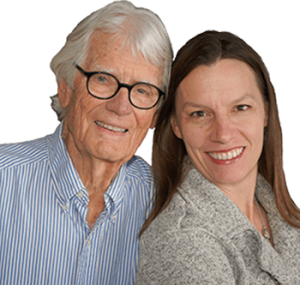
It’s an uncommon gift to reach 100 years of age – and be healthy. But apart from good genes and good luck, there are steps you can take to increase your chances for healthy longevity.
Long time readers will know what I’ve said over and over again. Too many people gain excessive weight, eat poorly, neglect exercise, and fall victim to other lifestyle problems. They experience chronic diseases too early in life, including diabetes and cardiovascular disease. My message has been, to prevent the onset of heart disease, a top killer, high doses of vitamin C taken over the long term can make a difference.
If you hear contrary views, ask about the dose. What doses are used in clinical trials? Peewee doses. And peewee doses of vitamin C won’t stop heart attacks.
Here’s what you need to know.
There are few nutrients as dynamic as high-dose vitamin C and lysine. While they are often praised individually, they have synergistic effects when combined.
Vitamin C, also known as ascorbic acid, has long been celebrated for its role in supporting a strong immune system and its potent antioxidant properties. It plays a pivotal role in collagen production, wound healing, and the absorption of iron from plant-based foods.
But it is high-dose vitamin C that helps combat viral infections, reduce inflammation, and even improve cancer outcomes. Moreover, it serves as a potent antioxidant, neutralizing harmful free radicals and protecting cells from oxidative damage.
Lysine is an essential amino acid important to protein synthesis and tissue repair. Our bodies cannot produce it, so we get it through diet or supplementation.
Lysine and vitamin C work in tandem to fight cardiovascular disease and stroke. Atherosclerosis, the hardening and narrowing of arteries, is a significant contributor to heart disease. Lysine plays a pivotal role in preventing the buildup of arterial plaque, while vitamin C helps maintain blood vessel walls and repair damage.
Dr. Linus Pauling, a two-time Nobel laureate, championed this combination to combat cardiovascular disease. Two interviews with him convinced me to bet my life on vitamin C and lysine after my heart attack 27 years ago. Hopefully you won’t have to make that decision. But my experience is evidence that there is an alternative to statins.
One of the most immediate and relatable benefits of high-dose vitamin C and Lysine is their ability to ward off the common cold. The combination of these two nutrients can reduce the severity and duration of colds. Their immune-enhancing properties bolster the body’s defense mechanisms, making it more resilient against viral invaders. When taken regularly, colds are infrequent.
Environmental toxins and stressors mean chronic inflammation and oxidative damage. High-dose vitamin C and lysine act as a potent antioxidant shield, neutralizing free radicals and reducing inflammation.
This protective effect extends to conditions like arthritis, where inflammation and joint damage are prominent features. When used in conjunction with a healthy lifestyle and appropriate medical treatment, this duo can offer relief to those suffering from chronic joint pain.
While high-dose vitamin C should not be considered a standalone treatment for cancer, it has shown promise as an adjunctive therapy. Intravenous vitamin C can enhance the effectiveness of certain chemotherapy drugs while reducing their side effects.
Furthermore, the combination of high-dose vitamin C and lysine can boost the body’s resilience during cancer treatment by mitigating the weakening effects of chemotherapy and radiation, allowing patients to better tolerate their treatments.
Final message. If it’s your intention to supplement with vitamin C and lysine for only a few months, it won’t work. It is a lifetime habit you need to follow.
Sign-up at www.docgiff.com to receive our weekly e-newsletter. For comments, contact-us@docgiff.com. Follow us on Instagram @docgiff and @diana_gifford_jones.

